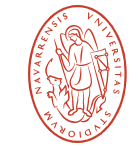Confederacion Espanola de Organizaciones Empresariales usually refers to the Spanish Confederation of Business Organizations, abbreviated as CEOE. The following is a relevant introduction:
Introduction
The Spanish Confederation of Business Organizations is an organization representing the interests of the Spanish business community. It integrates public and private companies from various economic fields. It aims to safeguard the common interests of enterprises, promote enterprise development, and strengthen communication and cooperation between enterprises and the government, society and other aspects.
Overview
Membership size: It has more than 2 million voluntary corporate members, and has established connections with the Federation through more than 4,500 grassroots associations.
Organizational structure: It consists of four management bodies, including the General Assembly, the Board of Directors, the Executive Committee and the Chairman. The members of these bodies include the Chairman, Vice Chairman, Executive Committee members, Board members and Secretary General, who are responsible for representing the organization and implementing relevant decisions.
History and establishment time
Founded in 1977, the main promoter is economist, businessman, politician and athlete Carlos Ferrer Salat.
School Strength
This organization is not an educational institution in the traditional sense, and there is no such thing as school strength, but it has strong strength in promoting business development and economic research:
Enterprise representation and cooperation: As an important representative of the Spanish business community, it conducts extensive dialogue and cooperation with the government, trade unions and other social organizations, actively participates in the formulation of economic policies and regulations, and strives for a favorable development environment for enterprises.
Economic research and suggestions: Conduct research on the Spanish economic situation, industry development trends, etc., provide market analysis, industry dynamics and other information to member companies, help companies formulate development strategies, and also provide reference for government decision-making.
Promote the internationalization of enterprises: Help Spanish companies expand into the international market, enhance the international competitiveness of Spanish companies by organizing business inspections, participating in international exhibitions, and carrying out international cooperation projects, and strengthen economic and trade cooperation between Spain and other countries.
Institutional nature
The Spanish Federation of Business Organizations is not an educational institution, but a joint organization of the business community and an institution of industry association nature.
Educational philosophy
Since it is not an educational institution, it has no educational philosophy, but it has the following philosophy from the perspective of corporate development:
Advocating free market and competition: advocating the principle of free market, encouraging fair competition among enterprises, believing that this is an important driving force for economic development and corporate innovation, and is committed to maintaining the freedom and openness of the market, and opposing unreasonable market barriers and monopolistic behavior.
Supporting corporate social responsibility: emphasizing that while pursuing economic interests, enterprises should assume corresponding social responsibilities, pay attention to issues such as environmental protection, employee welfare, and social welfare, promote sustainable development of enterprises, and enhance the social image and reputation of enterprises.
Key laboratories, disciplines, and departments
Since it is not an educational institution, there are no key laboratories, disciplines, and departments that are unique to educational institutions.
Ranking
As a federation of business organizations, there is no ranking of educational institutions, but it has important influence and high visibility in the Spanish business community and economic field, and is an important representative and voice platform of the Spanish business community.
Expenses
The organization does not involve tuition fees and other fees of educational institutions, but member companies need to pay a certain amount of membership fees to the federation as its operating funds. The specific amount of membership fees varies according to factors such as the size and industry of the company.
Campus environment
Since it is not an educational institution, there is no such thing as a campus environment, but the federation will have office space for daily operations and organizing various activities. Its office space is usually equipped with modern office facilities and conference equipment to meet the needs of daily work and communication with member companies, government departments, other institutions, and holding meetings and other activities.
-

University of Navarra
-

Autonomous University of Madrid
-

Polytechnic University of Catalonia
-

CEU University of San Pablo
-

Technical University of Madrid
-

University of Lleida
-

University of Barcelona
-

University of Oviedo
-

University of Valladolid
-

University of Salamanca
-

Mesoamerican University
-

Istmo University
-

Mariano Galvez University of Guatemala
-

Regional University of Guatemala
-

Galileo University
-

Francisco Marroquín University
-

Rafael Landívar University
-

University of the Valley of Guatemala
-

University of San Carlos of Guatemala
-

Technological Institute of Tlaxcala Plateau
-

Golfo University
-

Technological University of South Sonora
-

Technological University of Huejotzingo
-

Tizimín Institute of Technology
-

Chilpancingo Institute of Technology

